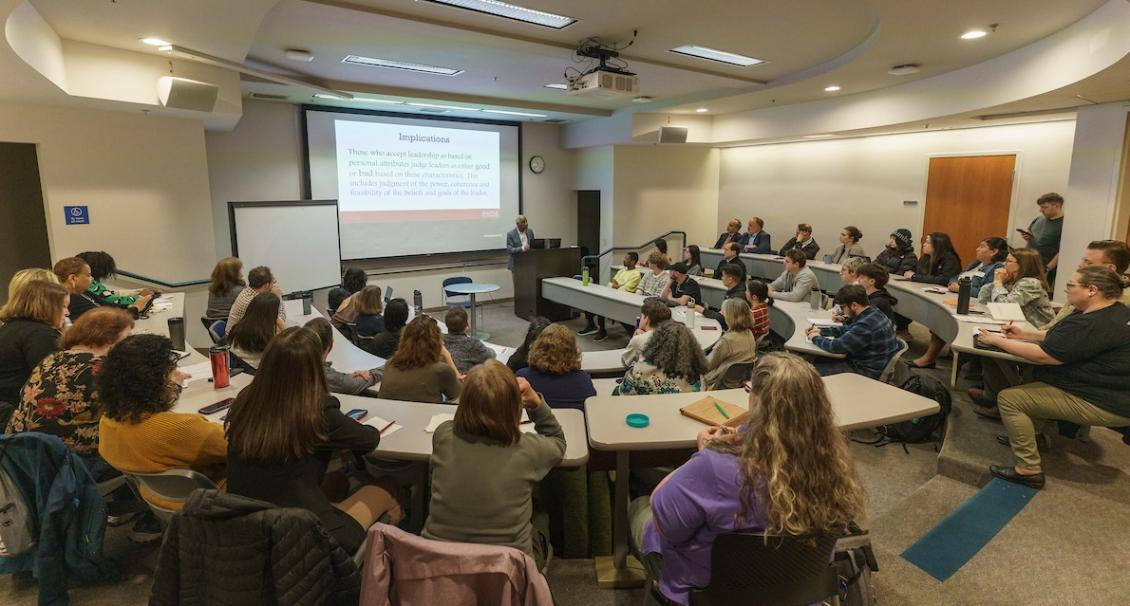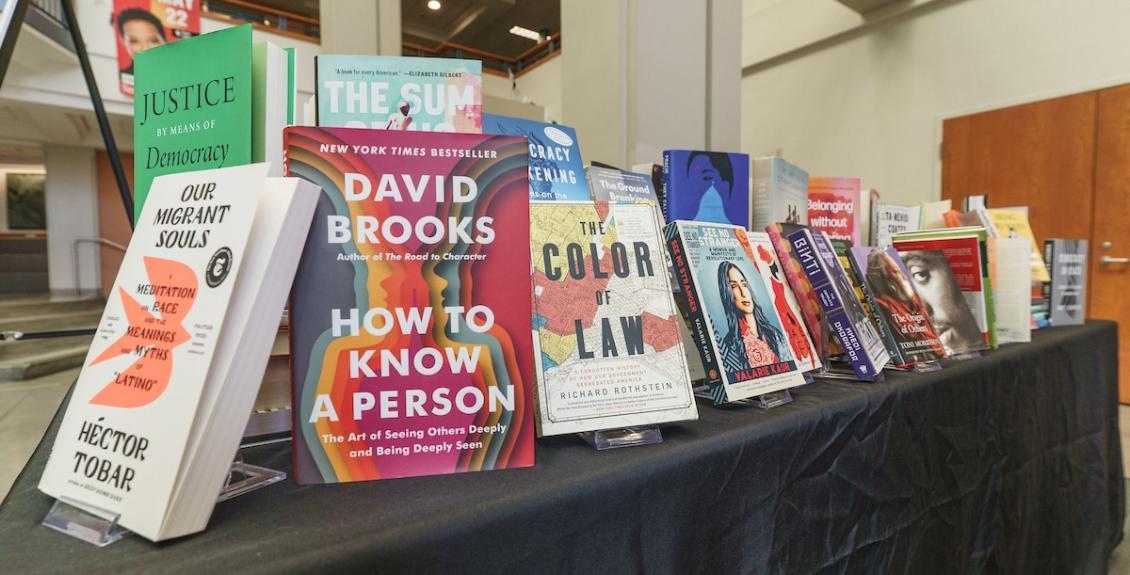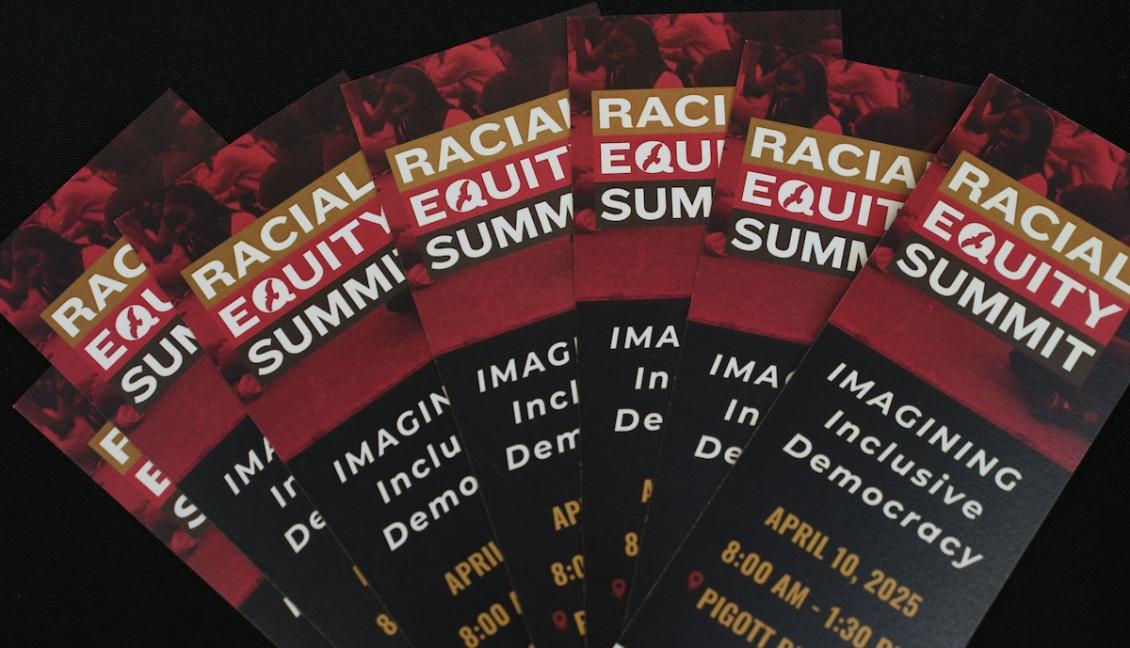/77x0:1124x668/prod01/channel_34/media/seattle-university/news-amp-stories/images/Racial-Eq-Summit-with-Eduardo-and-keynote.jpg)
Seattle University brings campus community together for its biennial Racial Equity Summit with topics especially relevant to the current times.
In her opening comments at Seattle University's Racial Equity Summit, Law Professor Natasha Martin, JD, who is vice president of the Office of Diversity & Inclusion, addressed the elephant in the room.
As civil liberties are being challenged across the country, especially on college campuses, causing anxiety and uncertainty and shaking the confidence in the world’s oldest democracy, she asked a capacity audience in Pigott Auditorium the most pressing question: “What can we do?” Addressing the assembled students, faculty and staff Martin said, “This is something that we can do as a university and particularly as a Jesuit university—engage, dialogue, stretch our thinking and community build.”
The theme of the 2025 Racial Equity Summit, Seattle University's biennial event, was “Imagining an Inclusive Democracy,” a timely theme that Martin said expressed SU’s Jesuit and Catholic values.
She described the summit, with its 30 different breakout sessions—called “Futures Labs”—an incubator for imagining a future where all thrive.
“These are essential steps in our ongoing commitment to build a more inclusive campus, community and society,” Martin said. “The power of this experience is in what we co-create together.”
In one Future Lab, led by SU’s Indigenous Peoples Institute Senior Director Jill K. La Pointe, participants heard stories told through generations in Lushootseed, one of the primary languages spoken by the Indigenous peoples who live around the Puget Sound. These tribal communities were grounded in the principles of inclusive democracy, La Pointe noted.

The egalitarian principles at play in how their societies are structured can be seen in how speakers referred to others using the Lushootseed word “siʔáb,” which loosely translates to “honorable person.” This is the word they use to refer to others regardless of age, gender, education or wealth.
“All living beings were seen as precious and valuable, worthy of dignity, kindness and care,” said La Pointe.
The keynote speaker, author and Harvard University Professor Dr. Danielle Allen, emphasized the importance of civic education for young people and sees the process of building bridges between people and collaboration as a continuation of the work of the framers of the U.S. Constitution and for American democracy.
“I do literally believe myself to be doing work that has gone on for 250 years, so no one need tell us this work is not important, no one need tell us it's coming from left field,” she said. “To the contrary, at the heart of the American experiment has always been the need to actually understand its ideals in full and work to bring our reality closer to those ideals.”
President Eduardo Peñalver led a discussion with Dr. Allen, who appeared virtually, and pointed out that in her work she engaged with thinkers like Aristotle and the founding generation of American democracy. President Peñalver noted though these thinkers stand alone for their contributions to western thought, some of their views on race and gender are anathema in an equitable society. He asked if those lessons could serve as the foundation of intellectual humility for errors that could be embedded in our thinking today.

“I am sure I have errors of a similar character and I don't know what they are,” Dr. Allen said. “It’s a very painful and discomfiting feeling, absolutely.”
She added: “It is a good recipe for intellectual humility and also I want to say I think it's a recipe for being able to genuinely recognize what is valuable even in the people who made considerable mistakes.”
Hannah Valiente-Verhulst, a first-year English major, said the event helped her connect with her classmates and campus.
“With the current political climate, it’s been really hard to know how we can take action and what our response should be,” she said. “So, to have a structured environment where you can hear different stories and connect with different people who are also passionate helps you feel a little more connected.”

/30x0:2107x1312/prod01/channel_34/media/seattle-university/news-amp-stories/images/MOSAIC-Center-photo-collage.jpg)
/0x142:2400x1658/prod01/channel_34/media/seattle-university/news-amp-stories/images/Helfgott-photo.JPG)
/0x38:2400x1554/prod01/channel_34/media/seattle-university/news-amp-stories/images/Jerron-Lowe-portrait.JPG)